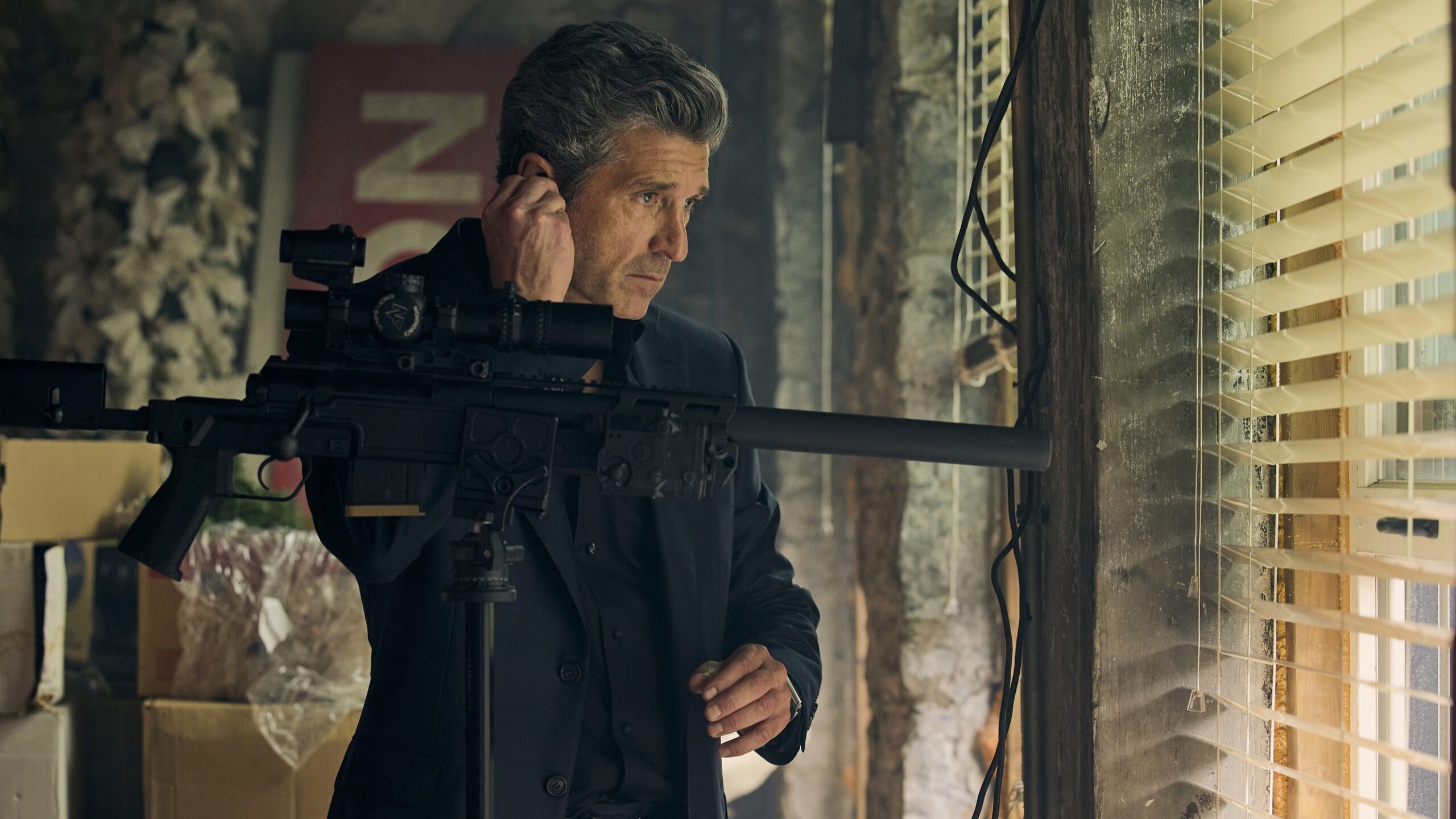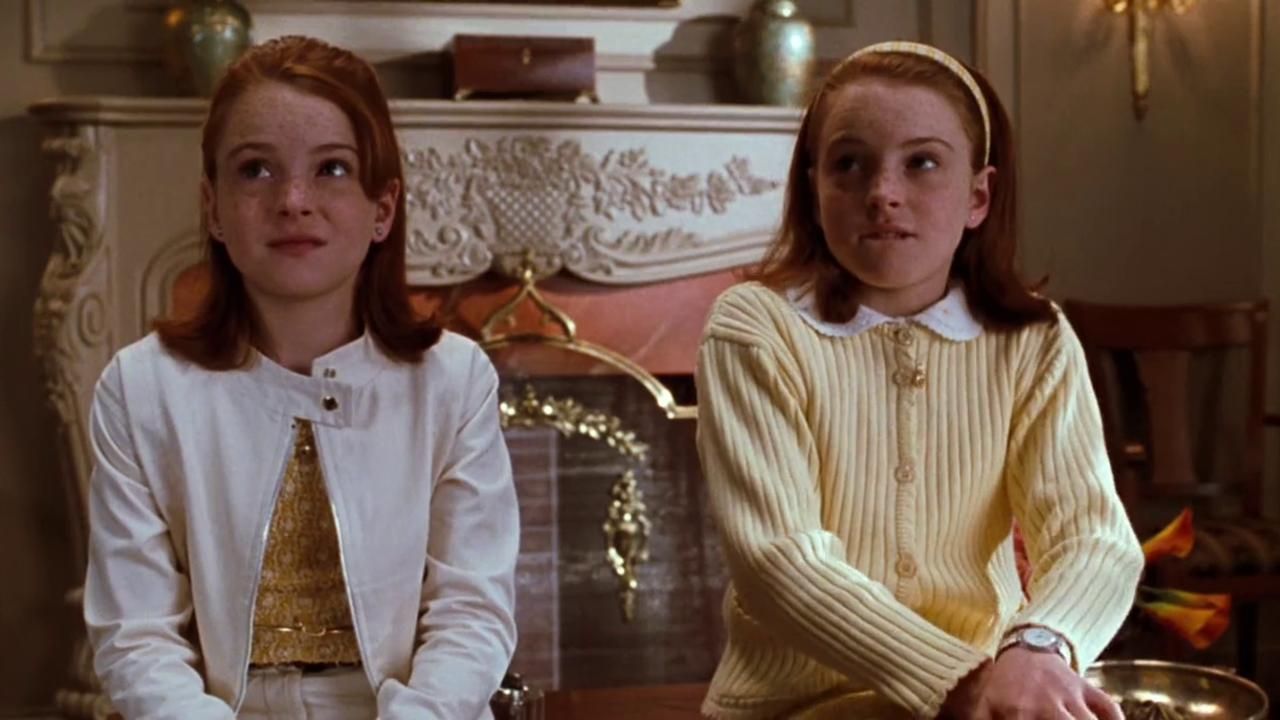For more than a decade, the narrative surrounding comic book studios Marvel, owned by Disney, and DC, owned by Warner Bros., has been one of a contentious rivalry, with Marvel enjoying the clear edge.
But there’s a plot twist coming.
The release of Marvel’s “Guardians of the Galaxy Vol. 3” on Friday marks the symbolic end of writer and director James Gunn’s time with one comic book studio and the start of his reign at another. And, for once, the success of a Marvel film could bode well for the future of its longtime adversary.
The new film is expected to generate between $120 million and $155 million domestically during its upcoming opening weekend, on par with the 2017 release of “Guardians of the Galaxy: Vol. 2,” which went on to snare $870 million globally, according to data from Comscore.
The success of “Guardians of the Galaxy Vol. 3” would show that Gunn has his finger on the pulse, and has the potential to deliver similar results over at DC Studios, where he was named co-CEO last year.
While Marvel has clearly seen greater box-office success in the last decade, generating $28.7 billion in global ticket sales from 31 feature films since 2008, industry experts don’t count out DC. The DC Extended Universe, which released 12 films since 2013, saw box-office returns of $6.4 billion and built ardent fan bases for writer-director Zack Snyder and live-action versions of characters like Harley Quinn (Margot Robbie).
Changes are coming to both studios, as attendance at cinemas has lagged in the wake of the pandemic and Marvel and DC look to lure back audiences with captivating and innovative storytelling. Their parent companies are also looking to lean more into franchises while cutting spending in other areas of their businesses. And while Marvel has remained under the steady stewardship of Kevin Feige, DC looks to find new footing under new leadership.
“It is not a oppositional relationship,” said Brandon Katz, an industry strategist at Parrot Analytics, of the perceived rivalry between Marvel and DC. “I actually think it’s additive.”
Gunn for hire
Gunn has been one of several creative shepherds for Marvel since “Iron Man” hit theaters and kicked off the Marvel Cinematic Universe in 2008. Gunn’s first film with Marvel, “Guardians of the Galaxy,” saw a ragtag team of intergalactic criminals turn into reluctant heroes.
While some saw the idea of a gun-toting raccoon and a talking tree teaming up in a tent pole Disney film as potentially disastrous, Gunn’s script, packed with comedy and heart, went on to generate $770 million globally in 2014.
The writer-director took a brief hiatus from working with Marvel, after tweets resurfaced in which he made jokes about pedophilia and molestation. During this time, he teamed up with DC to write and direct “The Suicide Squad,” another film about a ragtag group of antiheroes, although this time Gunn tapped into his edgier side and netted an R rating. Eventually, Gunn was rehired by Disney to write and helm “Guardians of the Galaxy: Vol. 3,” which would be his last venture with Marvel Studios.
In November, Gunn and producer Peter Safran, were given the reins for DC Studios and have since developed a 10-year plan to reinvigorate its franchises across TV and film, including fresh spins on Superman and Batman.
The duo have worked together previously on projects and bring extensive industry experience to the comic book studio. Gunn, in addition to working at Marvel, has a long career in Hollywood and the indie film world, with screenwriting credits for movies like “Scooby Doo” and Snyder’s “Dawn of the Dead” remake. He also directed subversive genre films like “Slither” and “Super,” and wrote “Tromeo and Juliet” for schlock studio Troma.
Safran began as a talent manager before transitioning into producing, helping to launch The Conjuring Universe, a lucrative franchise of interconnected horror films. He also produced a handful of DC titles including “Aquaman,” “Shazam” and Gunn’s “The Suicide Squad.”
Industry experts see Gunn and Safran as a potential dynamic duo.
“I think between the two of them there is a certain level of experience in those worlds to be able to shepherd a lot of untapped potential in DC,” said Shawn Robbins, chief analyst at BoxOffice.com. “Gunn has shown that he can succeed in both Marvel and DC. That speaks to being able to transcend a brand. It comes down to his understanding of character and his understanding of what the audience is looking for. So, I think there’s reason to be confident.”
DC’s new strategy includes creating a cohesive universe like Marvel’s while still making unique “elsewhere” content, where characters and storylines do not need to be connected to one overarching narrative.
The studio has seen success from these solo ventures with films like 2019’s “Joker” and 2022’s “The Batman” as well as its television content, which airs on The CW and via the streaming service Max.
“The upside of [DC] being a little bit more Wild, Wild West over the last decade is that their shows have kind of run the gamut of tone, genre and style,” said Katz.
This has allowed the studio to provide content for different audiences and demographics.
“‘The Flash’ is as different from ‘Doom Patrol’ which is as different as ‘Harley Quinn,'” he said.
Gunn and Safran will continue that tradition, but with their own stamp on it. Upcoming TV content includes an animated show featuring “Suicide Squad” character Amanda Waller forming a black-ops team of monstrous prisoners, a “True Detective”-style Green Lantern show centered on intergalactic cops John Stewart and Hal Jordan, and a “Game of Thrones”-style show set in Themyscira, home of the Amazons and birthplace of Wonder Woman.
On the theatrical side, DC Studios has announced five new projects that will roll out starting in 2025 with Gunn’s own “Superman: Legacy.” There will also be a new take on Batman, with Damian Wayne, the son of Bruce Wayne, taking on the role of Robin. DC also plans a Supergirl film, another centered on Swamp Thing and one about superhero team, The Authority.
A marvelous run
DC isn’t the only one undergoing a major reinvention. Marvel, which has faced some audience criticism for what it’s released after the much-praised “Avengers: Infinity War” and “Avengers: Endgame” films, is seeking to recoup goodwill from fans and more box-office business.
Disney CEO Bob Iger even questioned if Marvel should continue creating third and fourth films for established legacy characters, rather than exploring new heroes, antiheroes and villains. His comments, which were delivered in March during the Morgan Stanley Technology, Media and Telecom Conference, came on the heels of the disappointing box-office performance of “Ant-Man and the Wasp in Quantumania” and “Thor: Love and Thunder.”
Disney has been releasing new content from the MCU at a somewhat frenetic pace over the past few years. The entertainment giant has used streaming service Disney+ as a vehicle to introduce new characters — Moon Knight, Ms. Marvel, She-Hulk — as well as to more deeply explore legacy characters (Loki, Falcon, the Winter Soldier) between theatrical releases.
As the MCU grows, some have rallied behind the franchise, excited for new entrants and content. Others have found the required viewing of additional series to be arduous. It seems Marvel took the hint, pushing its release of “The Marvels” to November from July, allowing space for “Guardians of the Galaxy: Vol. 3” to breathe across the summer movie season.
Still, industry analysts say the recent slump at the box office and critical reception for MCU films isn’t something to worry about. After all, Robbins said, it’s happened before.
In the wake of 2012’s “Avengers,” which shattered theatrical records at the time, fans expressed disappointment in follow-up films “Iron Man 3” and “Thor: The Dark World.” While the third solo Iron Man film tallied $1.2 billion at the global box office, the second Thor feature secured just $644 million, a relatively small sum in comparison to previous Marvel hits.
“They’ve set such a standard for themselves,” Robbins said. “It’s impossible to keep living up to it every single time.”
Of course, the post-“Endgame” landscape was also mired by the pandemic, which shuttered theaters for a time, and led to some Marvel releases going day-and-date with streaming service Disney+ for a fee.
But the $854 million in ticket sales for 2022’s “Black Panther: Wakanda Forever” fly in the face of claims about superhero fatigue. Even the paltry $464 million in receipts for the most recent MCU film “Ant-Man and the Wasp: Quantumania” says more about film quality than a disinterest in the genre, experts say.
“When you deliver something that’s historic, like ‘Infinity War’ and ‘Endgame,’ you are setting up a bar that fans are going to expect you to at least hit or get near with every one of your projects,” said Erik Davis, managing director at Fandango.
Marvel has laid the groundwork in the wake of “Endgame” to establish a new team of Avengers, including Shang-Chi, Ms. Marvel, She-Hulk, Moon Knight and America Chavez, as well as a team of antiheroes in the form of the Thunderbolts.
There is confidence from industry analysts that Marvel will right its ship in the coming years. Katz noted that unexpected heroes – like Gunn’s Guardians of the Galaxy – are the bedrock of the MCU.
“Marvel Studios, out of necessity, cultivated A-list appeal from B-list characters,” he said.
Unsteady ground
Still, the road ahead is anything but smooth for Marvel and DC. Both studios are dealing with major cast-related scandals and a not-yet rebounded theatrical industry. It has also yet to be seen how the current Writers Guild of America strike will affect TV and film production.
While initial social media reviews out of CinemaCon suggest that “The Flash” is a return to form for DC Studios, controversy surrounding star Ezra Miller could complicate the future for the character of Barry Allen and the connected tissue of Gunn and Safran’s new DC Universe.
Last year, Miller admitted they had “gone through a time of intense crisis” and would undergo treatment for “complex mental health issues” in the way of being charged with felony burglary in Stamford, Vermont. While Miller ultimately avoided jail time with a plea deal struck in January, their future at DC remains uncertain.
Early indications from Warner Bros. suggested that the distributor would still send the film to theaters, but future projects with the actor would be paused. It is unclear whether Miller will be able to reestablish enough goodwill with fans and the studio to secure themselves another chance to return.
At Marvel, there are similar issues regarding Jonathan Majors, the actor who has portrayed the MCU’s newest overarching villain Kang. Multiple alleged abuse victims have come forward following the actor’s March arrest in Manhattan for domestic violence.
Majors’ attorney, Priya Chaudhry, has repeatedly defended her client, telling the press that he is “innocent,” “has not abused anyone” and “will be fully exonerated.” Majors is set to appear in court on May 8.
While the character of Kang appeared in the “Loki” series and was an integral part of “Ant-Man and the Wasp: Quantumania,” the expectation is that the villain won’t make a major theatrical return until “Avengers: The Kang Dynasty” and, potentially, “Avengers: Secret Wars,” due out in 2025 and 2026, respectively.
This could allow Marvel time to wait and see how Majors’ legal problems pan out, but sooner or later, the studio will be forced to address the issue. Especially, considering how far in advance these films need to be shot in order for special effects to be added.
There is also the unanswered question about the future of Spider-Man within the Marvel Cinematic Universe. Disney has managed to broker deals in the past with Sony, which owns the rights to the character, to have Spidey appear in MCU films. However, after “Spider-Man: No Way Home,” it’s unclear when Peter Parker played by Tom Holland will return.
“I think Spider-Man is the most popular and the most lucrative character right now on the big screen,” Davis said. “And I think Marvel Studios, sooner rather than later, needs to tell us what’s going on with Spider-Man.”
Davis suggested Disney could be holding out on making any announcements until ComicCon in San Diego this July.
Forging ahead
While there is general optimism from industry experts about the future of both studios, there remains some hesitancy that Gunn will be a silver bullet for DC Studios.
“There is a famous quote by William Goldman in his classic book, ‘Adventures in the Screen Trade.’ The quote is that when it comes to predicting movie success, ‘nobody knows anything,'” Mark Young, a professor at the Marshall School of Business at USC, wrote in an email to CNBC.
“Clearly, Mr. Gunn is extremely talented, but I don’t think we can assume that a success of a movie at another studio will necessarily translate into future success at another,” he said. “Certainly DC is betting that he will be successful and by all accounts he will be.”
Young, who teaches classes on the entertainment industry, said his students have discussed feeling the effects of superhero fatigue in classes. He sees this as the result of predictable plotlines within the genre that are repeated across both studios’ films.
With Gunn at the helm of DC, there is promise of a more unique slate of films and television shows. He’s already proven with his Guardians of the Galaxy films (and a holiday special), “The Suicide Squad” and “Peacemaker” that he can freshen up the genre.
“Where Marvel and DC unfortunately find themselves aligned is with a seeming creative malaise that has resulted in a noticeable pushback from fans who are not simply willing to follow every superhero movie into the multiplex,” said Paul Dergarabedian, senior media analyst at Comscore.
“That said, the superhero genre is one that will always have appeal for audiences looking for the among the most epic of big screen experiences and with endless creative possibilities and incredible talent on both the Marvel and DC teams, no one should give up on either of these companies adjust strategies and deliver the creative and financial goods moving forward,” he added.
And even with this malaise, many industry experts told CNBC that the strong track records from Marvel and Gunn bode well for the genre.
“I am not remotely ready to bet against Kevin Feige, who helped engineer the single-most consistently successful creation in Hollywood history,” Katz said. “I think if there’s ever someone to to leave this next phase of DC it’s a unique, singular voice like James Gunn, who just spent the better part of a decade learning under Kevin Feige.”
Disclosure: Comcast is the parent company of NBCUniversal and CNBC. NBCUniversal owns a stake in Fandango.







